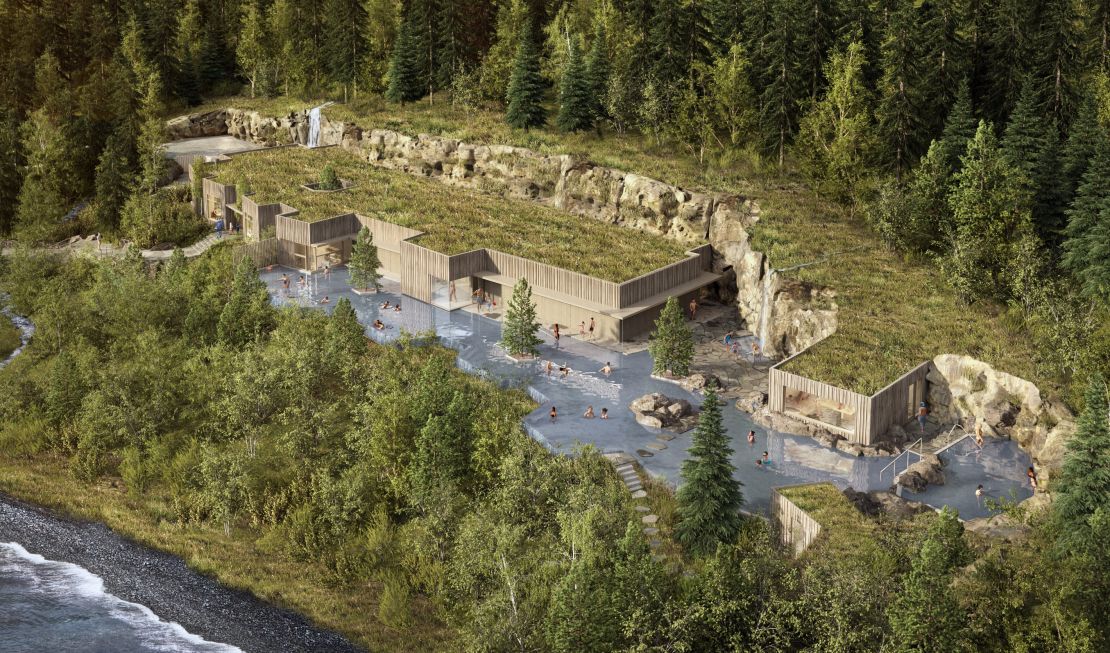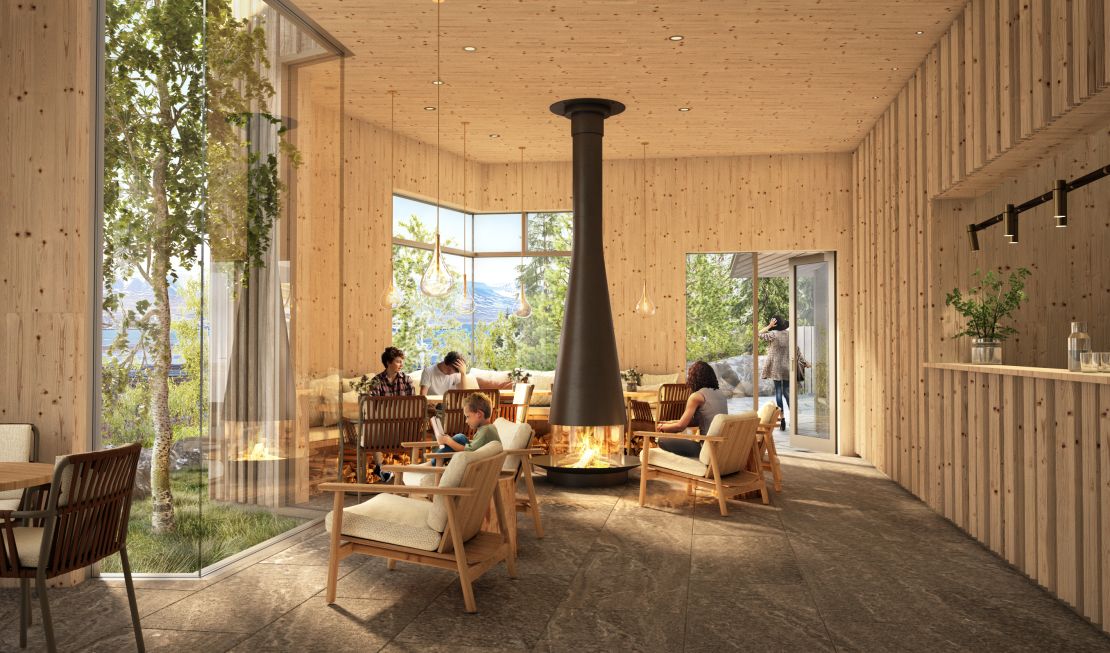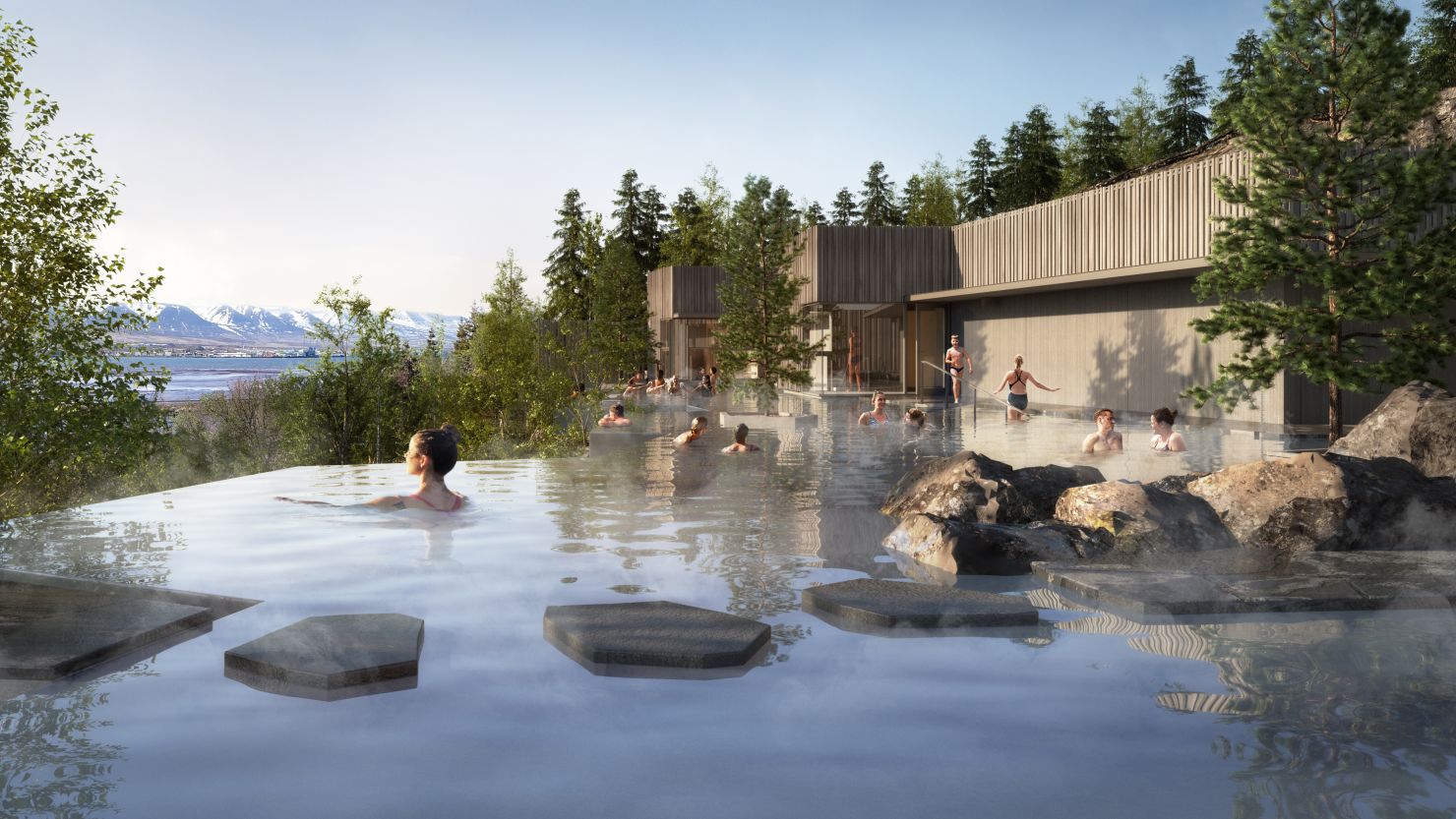Tucked away in the northern woodlands of Iceland lies a cozy new spa set to soothe visitors who are looking to enjoy natural hot springs and greenery in equal measure.
Forest Lagoon, designed by the same architects behind the long-popular Blue Lagoon and the more recent GeoSea spas, will provide the services that visitors have come to expect from a modern geothermal spa in Iceland. However, it is the Lagoon’s integration with the surrounding rock and wooded environment that sets it apart.
Spa in the trees

Soaking in one of two 104 F infinity pools, drink in hand from either swim-up bar, visitors can look through the opening of birch, pine and fir trees to a panoramic fjord vista.
The spa’s leisure pools are heated with all-natural geothermal water sourced from the mountainside behind it. Originally discovered by construction crews in 2014 during an unrelated tunnel project connecting Akureyri and Húsavik, the water has been transformed from a source of headache to a source of relaxation.
Expected to open by April, Forest Lagoon’s 1,300-square-meter complex includes a bistro, two infinity pools with swim-up bars, a cold pool and a sauna. The facility can accommodate up to 200 visitors at a time.
Located in the Vaðlaskógur forest, the spa is a couple minutes’ car drive or a short walk from Akureyri. Known locally as the “Capital of the North,” this town is about a 40-minute flight or five-hour drive from Reykjavík.
Environment and design
The spa seems to meld into the surrounding forest and mountain, and that’s by design.
Hrólfur Karl Cela is one of the lead architects working on Forest Lagoon. Having also worked on designing the Blue Lagoon and GeoSea spas with Reykjavík-based Basalt Architects, he explained the main goal of these projects is integrating them into the environment and emphasizing the unique quality of each location.
“In this case, how the architecture can integrate into the forest to provide a hybrid experience of geothermal bathing and forest bathing, both at the same time,” Cela said via email.

It’s not just what’s on the outside that counts, it’s about what’s inside, too. Cela explained that designers wanted to reduce the building’s environmental impact while also keeping visitors immersed in the forest.
That’s why cross-laminated timber was the material of choice when accenting the spa’s interior.
According to climatetrust.org, the construction material can reduce a new building’s carbon footprint, while also being fire and earthquake-resistant.
Another reason to go north
The 2014 discovery of the geothermal water source delayed construction of the tunnel, but spurred soon-to-be business owners Sigríður Hammer and her husband Finnur Aðalbjörnsson into action.
After buying 250 hectares of land and acquiring rights to use the runoff water, construction for the Forest Lagoon began in the summer of 2021. Hammer explained that she and her husband wanted to highlight the beauty of one of Iceland’s lesser-known towns.

“Akureryi is a beautiful sight and has a lot to offer … but we wanted to offer tourists more to explore in Akureyri and stay here a little longer.” Hammer said.
Admission for two people with two drinks included is expected to run about $112 (13,900 Icelandic Króna), with single admissions under $50 per person and discounted rates for larger groups of five or 10.
The geothermal pools are not only for tourists either; with plans to be open year-round, Hammer said special winter passes will be available for locals. If things go well in the first year, the couple will consider expansions in the form of a massage spa and hotel nearby.
Both Forest Lagoon’s owners and architects are hopeful that the worst of the pandemic is behind them and that visitors can enjoy this quintessentially Icelandic experience with peace of mind.

“The history of geothermal bathing in Iceland is very interesting,” Cela said.
“The act of bathing here is kind of like a public right. This is where meaningful conversations happen, in the hot tub, in the pools. You get people who don’t know each other at all, you’re all half-naked, so there’s no status, you don’t know who the other is, and this encourages a more open exchange.”
Top image: A rendering of Forest Lagoon in Akureyri, Iceland. (Basalt Architects)



